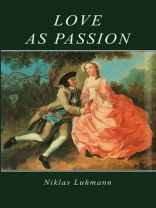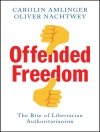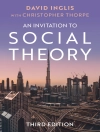In this important book Niklas Luhmann – one of the leading social
thinkers of the late 20th century – analyses the emergence of
‘love’ as the basis of personal relationships in modern
societies. He argues that, while family systems remained intact in
the transition from traditional to modern societies, a semantics
for love developed to accommodate extra-marital relationships; this
semantics was then transferred back into marriage and eventually
transformed marriage itself. Drawing on a diverse range of
historical and literary sources, Luhmann retraces the emergence and
evolution of the special semantics of passionate love that has come
to form the basis of modern forms of intimacy and personal
relationships.
This classic book by Luhmann has been widely recognized as a
work of major importance. It is an outstanding contribution to
social theory and it provides an original and illuminating
perspective on the nature of modern marriage and sexuality.
Daftar Isi
Preface to the English Edition 1
Introduction 8
1 Society and Individual 12
Personal and Impersonal Relationships
2 Love as a Generalized Symbolic Medium of Communication 18
3 The Evolution of Communicative Capacities 34
4 The Evolution of the Semantics of Love 41
5 Freedom to Love 48
From the Ideal to the Paradox
6 The Rhetoric of Excess and the Experience of Instability 58
7 From Galantry to Friendship 76
8 Plaisir and Amour 84
The Primary Difference
9 Love versus Reason 94
10 En Route to Individualization 97
A State of Ferment in the Eighteenth Century
11 The Incorporation of Sexuality 109
12 The Discovery of Incommunicability 121
13 Romantic Love 129
14 Love and Marriage 145
The Ideology of Reproduction
15 What Now? 155
Problems and Alternatives
16 Love as a System of Interpenetration 172
Notes 179
Index 240
Tentang Penulis
Niklas Luhmann was Professor Emeritus of Sociology at Bielefeld University.












